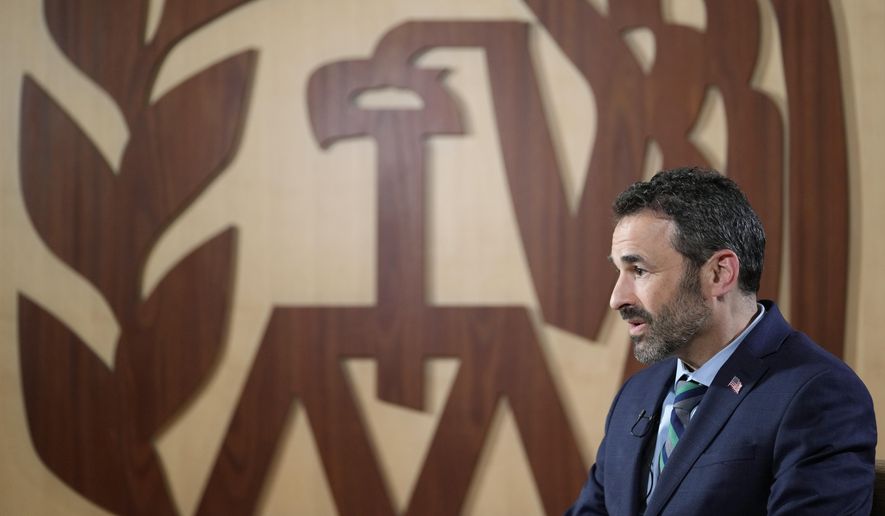IRS Commissioner Daniel Werfel said Thursday that the agency has made huge strides in improving customer service, but will soon need more money if Congress wants continued progress for the rest of the decade.
Two years ago, Congress allocated tens of billions of dollars for the IRS to fix problems, including years of unanswered phone calls, outdated technology, backlogged returns and low audit rates.
Mr. Werfel said he could deliver a significant increase in the number of audits of the wealthy but his funding for technology upgrades will run dry by 2026. That means customer service, which rebounded this year to an 88% level of service, could drop back to 30%, leaving most taxpayers unable to reach anyone at the agency for assistance.
He said Congress clawed back $20 billion of the $80 billion allocated in President Biden’s 2022 budget-climate law. He said the agency wants lawmakers to restore that money and add more.
“The IRS will continue focusing on making improvements and efficient use of funding,” Mr. Werfel said. “But to stress the importance of continuing this momentum, the IRS will continue working to make a difference for the nation’s taxpayers. At the same time, it’s critical that the IRS has stable, secure funding to allow technology modernization and taxpayer service improvements to continue into the future.”
The commissioner said the full $104 billion that Mr. Biden is requesting for the next 10 years would deliver an additional $341 billion in tax collections.
Republicans say that worries them. They envision a supercharged IRS with so much money and power that it sweats dimes out of average taxpayers.
Mr. Werfel said that’s not his goal.
He said the money is already used to pursue wealthy tax cheats while keeping audit rates for taxpayers with annual incomes of less than $400,000 at “historically low levels.”
Mr. Werfel released a strategic operating plan that would nearly triple audit rates, from 8.8% to 22.6%, for corporations with assets of at least $250 million a year. It would increase audit rates on wealthy individuals from 11% in 2019 to 16.5% in 2026.
The operating plan lays out the IRS’s objectives for the coming months.
It includes two pilot programs that the agency said would reduce “racial disparities” in audits. The agency has concluded that it audits Black taxpayers at higher rates, though it has struggled to determine why.
Mr. Werfel is also eager to harness artificial intelligence, and he has promised “dramatically” improved services with better live assistance, simplified notices and new digital tools.
The IRS also wants to expand its workforce.
The agency has gone from about 79,000 full-time equivalent positions in 2022 to 90,000 this year. It plans to add another 14,000 positions by 2029 to reach a force of 102,500.
“We believe that figure represents a ‘right-sized’ IRS, reflecting the needs to serve taxpayers and responsibly enforce the law given the complexity of the nation’s tax laws,” he said. “That number won’t even be a record high for the IRS workforce. It’s still well below the numbers from the late 1980s and early 1990s.”
Mr. Werfel said the plan is a far cry from the 87,000 people whom Republicans, using administration calculations, figured would be hired. The commissioner said the new hires would fill various positions and would not all be “armed agents,” as some have suggested.
“This report should lay to rest any lingering myths about a ‘supersized’ IRS,” he said.
Mr. Werfel cast his quest for money as a way to repair “years of underfunding” dating back to Republican control of the House after the 2010 elections.
The IRS says its budget was cut 18%, adjusted for inflation, until 2021. That sapped funding to answer calls, update technology and perform audits.
Audit rates plummeted across the board over the past decade. In 2010, the IRS audited 7 out of every 1,000 taxpayers with incomes of $50,000 to $100,000. By 2018, it was 2 out of every 1,000.
• Stephen Dinan can be reached at sdinan@washingtontimes.com.




Please read our comment policy before commenting.